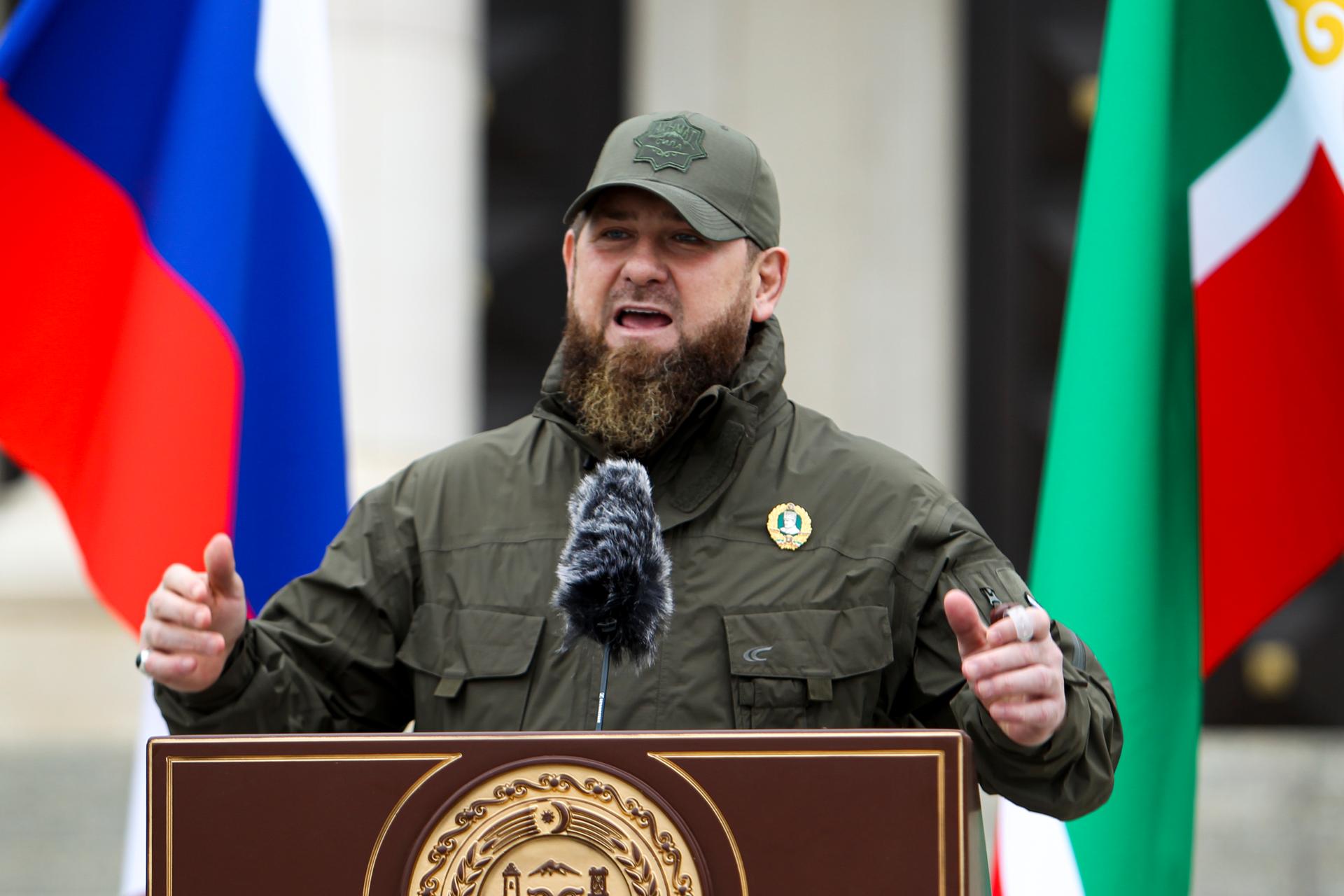Ramzan Kadyrov, the leader of Chechnya, a Muslim-majority republic under Russian rule in the Caucasus Mountains, is a recognizable figure.
He’s a modern-day warlord who gets into Twitter fights with Elon Musk. He sends long messages to his roughly 3 million followers on Telegram, and he makes video calls with his fighters in Ukraine. His fighters, the “Kadyrovtsy” or “Kadyrovites” as they’re known, have reportedly been fighting since the war in Ukraine began.
Last week, Russian President Vladimir Putin promoted Kadyrov to army general. Ramzan Kadyrov is a long-time ally of Putin and is known for his inflammatory remarks and abysmal human rights record. He has also described Russia’s invasion of Ukraine as a “holy war.” But his relationship with Putin is complicated.
Ramzan Kadyrov, 46, is the son of Akhmad Kadyrov, the Chechen separist leader who fought against the Russians in the 1990s and 2000s. Russia fought two wars in Chechnya, and during that time, Grozny, the Chechen capital, was leveled, and tens of thousands of civilians were killed. Later, human rights groups discovered mass graves in an abandoned village in the vicinity of the nearby Khankala military base.
In the aftermath, rose the Kadyrovs — father and son — with a pro-Kremlin stance. When the elder Kadyrov was assassinated in 2004, Ramzan Kadyrov took over with the blessing of Russia’s leader.
“President Vladimir Putin came to power in the year 2000 and became known to the Russian public for this war against Chechnya, to bring back Chechnya into the Russian Federation,” said Valery Dzutsati, who teaches international relations at the University of Kansas. “And [Akhmad] Kadyrov implemented Russian policies of subjugation, of repression and all kinds of other policies in Chechnya.”
So, in a way, Dzutsati said, Ramzan Kadyrov is crucial to Putin’s identity as the Russian leader who brought Chechnya back to the empire.
“They depend on each other, Putin and [Ramzan] Kadyrov,” he explained.
Chechnya provides a model for Russia’s goals in Ukraine, said Miriam Katharina Heß, a research fellow on extremism and terrorism at the German Council on Foreign Relations.
Additionally, she said, the Chechen leader has global influence.
“[Ramzan] Kadyrov can be used to consolidate alliances with the Arab world. By, for example, staging himself as a Muslim and demonstrating [that,] in Russia, it is possible to conflate foreign policy and religion [by] calling fighting in the Ukraine war a jihad,” Heß explained.
Last week, Ramzan Kadyrov announced that his three sons will go to Ukraine to fight. He posted a video online showing the teenagers training with guns, rocket launchers and tanks.
Cerwyn Moore, who teaches international relations at the University of Birmingham in the UK, said that he doubts Ramzan Kadyrov’s sons will actually go to the front lines in Ukraine.
He added that Ramzan Kadyrov likes to project the idea that his forces are making a big difference on the ground, but the reality is different.
“The pro-Kremlin Chechen forces often are criticized for being sort of TikTok warriors, and by that, I mean people that tend to post images and footage, but don’t actually engage in any of the real front-line, major combat operations,” Moore said.
There are also Chechen fighters, Moore said, allied with Ukraine, fighting against the Russians.
Moore added that he believes that what Ramzan Kadyrov says and does is for domestic consumption.
“I don’t think we should put as much emphasis on what he says as some commentators might want to suggest. However, we should understand that it does resonate very much within the local communities and region of the North Caucasus.”
He went on to add that Ramzan Kadyrov is trying to project solidarity with Putin’s Russia at a time when people in places like Dagestan — which is next to Chechnya — are protesting against Moscow’s recruitment drive for the war in Ukraine.
But as close as Putin and Ramzan Kadyrov might seem, their alliance may not last, Dzutsati said.
Lately, Kadyrov has criticized Russia’s military performance in Ukraine.
“They have made mistakes, and I think they will draw the necessary conclusions,” Ramzan Kadyrov said in an audio message posted to his Telegram channel earlier this month.
“If things don’t turn out well for Russia and Putin, [Ramzan] Kadyrov is likely to be among the first, if not the first, governor of a Russian region who will try to establish his own state,” Dzutsati said.
The story you just read is accessible and free to all because thousands of listeners and readers contribute to our nonprofit newsroom. We go deep to bring you the human-centered international reporting that you know you can trust. To do this work and to do it well, we rely on the support of our listeners. If you appreciated our coverage this year, if there was a story that made you pause or a song that moved you, would you consider making a gift to sustain our work through 2024 and beyond?
